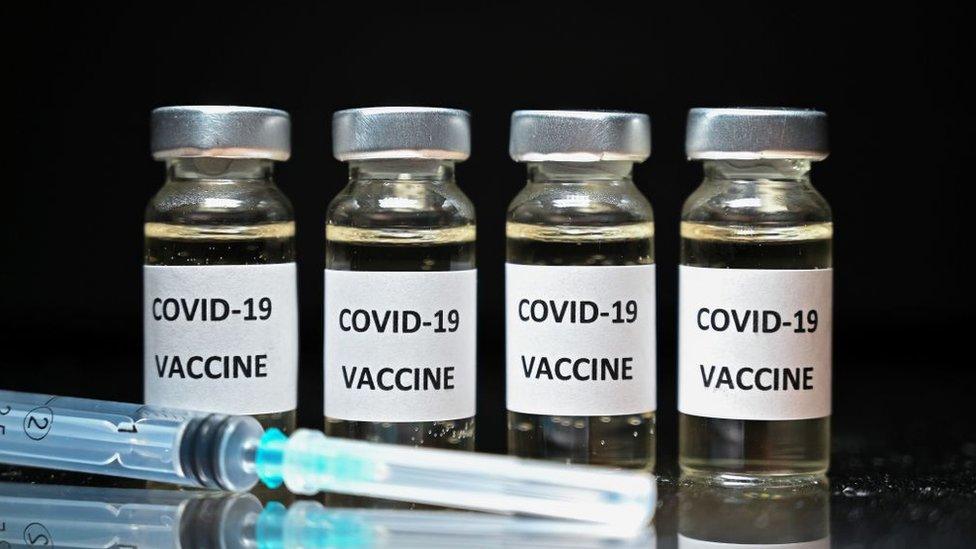Covid-19: Robin Swann says NI's infection rate still too high
- Published
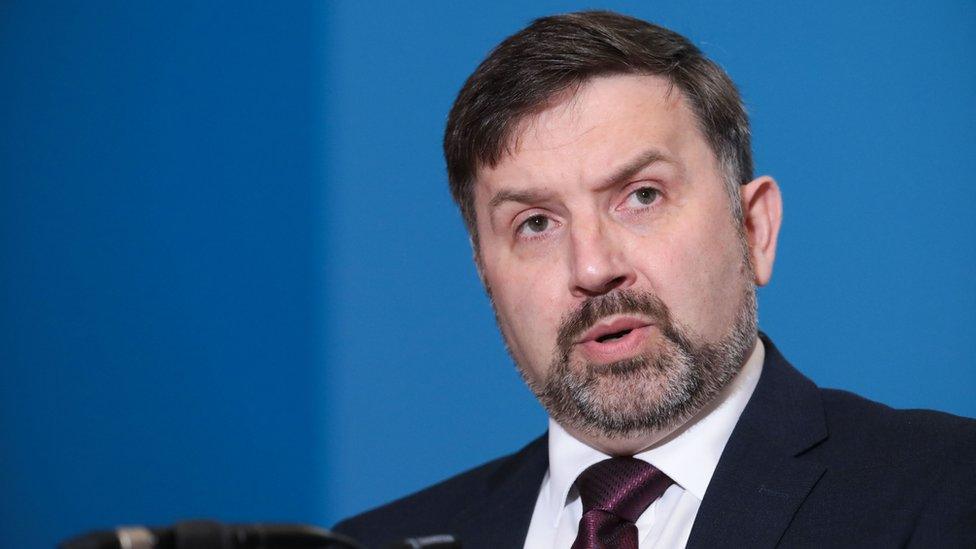
Health Minister Robin Swann says infection rates remain too high
Covid-19 infection rates in Northern Ireland are continuing to fall but they are still "too high", Health Minister Robin Swann has warned.
He urged people to keep following lockdown rules, in order to help give the health service "breathing space".
The public should "not slip up now - there are no shortcuts out of this," he added.
Northern Ireland is in a lockdown that is due to last until 5 March at the earliest.
Mr Swann's comments came as a further 11 coronavirus-related deaths were recorded by the Department of Health in Northern Ireland.
Its coronavirus death toll now stands at 1,889.
The latest figures, released on Wednesday, also recorded 504 new positive cases of the virus, bringing the total in NI to 105,225.
There are 701 people with Covid-19 being treated in Northern Ireland's hospitals, and 65 patients in ICU, 60 of them ventilated.
In the Republic of Ireland, 94 new coronavirus-related deaths were recorded in the latest figures from the Irish Department of Health, bringing the country's total to 3,512
A further 1,013 new cases of Covid-19 were also reported in Ireland on Wednesday.
Earlier on Wednesday, it emerged that a paper outlining how Northern Ireland exits the Covid-19 lockdown restrictions will be presented to the Stormont Executive within weeks.
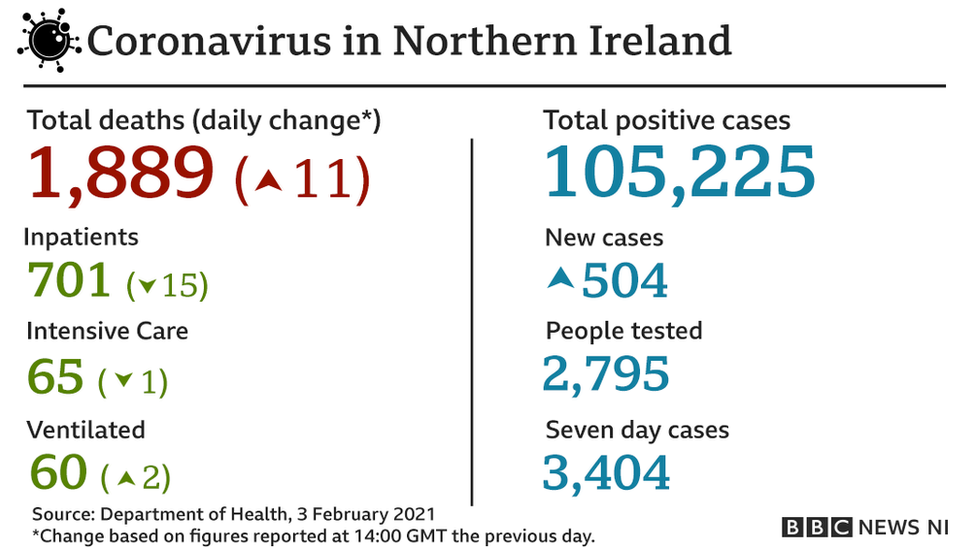
The Interim Head of the Northern Ireland Civil Service Jenny Pyper said the document prepared by the executive's Covid-19 task force is currently being worked on.
But she cautioned that while the plan would involve the reopening of schools, bars and restaurants, she did not have any specific dates in mind.
'Significant arrival of vaccine'
Speaking at Stormont's health press briefing on Wednesday, the minister said a "significant" new consignment of the Oxford-AstraZeneca vaccine had now arrived in NI and was already being distributed across the country.
He said almost 13,500 doses had been administered in the past 24 hours and commended staff on rolling out the programme while managing a further surge of the virus.
As of Wednesday, 271,826 vaccines had been given out in Northern Ireland.
Of those 246,671 were first doses and 25,155 were second doses.
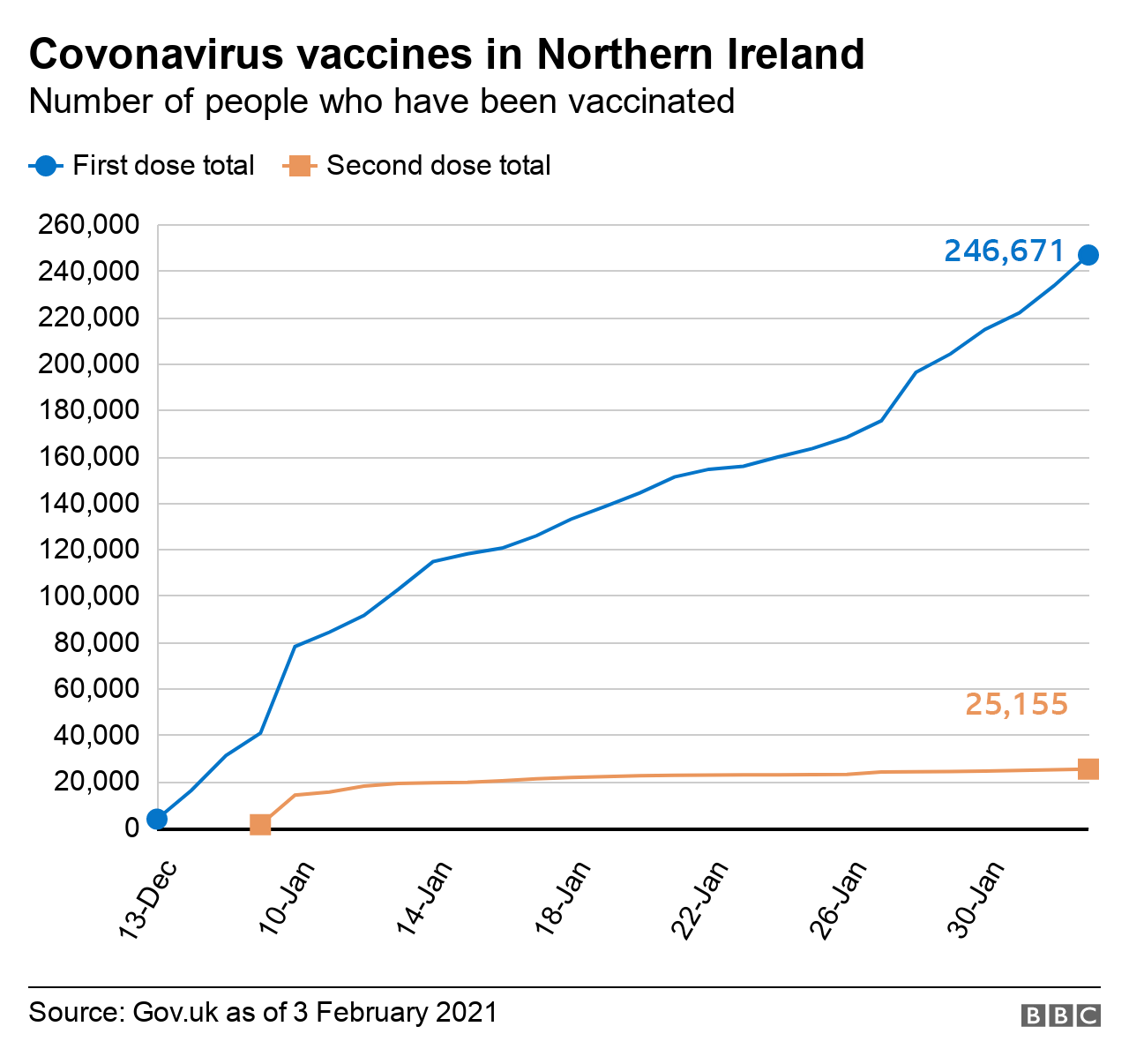
On Wednesday, Health Secretary Matt Hancock announced 10m people across the UK have now received their first dose of a vaccine.
In Northern Ireland, people aged 70 and over are receiving the Oxford-AstraZeneca jab from their GPs while those aged 65-69 are invited to book an appointment at one of seven regional vaccination centres for the Pfizer/BioNTech vaccination.
The Department of Health said people who have had vaccine jabs need to "keep strictly following all the measures that keep themselves and others safe from the virus."
"That includes staying at home and keeping their distance from people outside their households," it said.
In the Republic of Ireland, the Health Service Executive (HSE) has advised that people over 70 should get the Pfizer/BioNTech and Moderna vaccines, rather than the Oxford-AstraZeneca jab.
HSE Chief Clinical Officer Dr Colm Henry told RTÉ it was thought the Pfizer/BioNTech and Moderna vaccines afford greater protection for older people.
The country's National Immunisation Advisory Committee (NIAC) has recommended that all authorised vaccines can be used in adults of all ages, including those over 70.
However, it said Pfizer/BioNTech and Moderna, should be used for the over 70s where "practicable and timely".
In the UK, Public Health England has previously said the Oxford-AstraZeneca vaccine offers "high levels of protection" against Covid-19 to all age groups , particularly against severe illness.
'No quick fixes' for high streets
Meanwhile, assembly members have been told Northern Ireland's high streets face a very different future due to lasting economic effects of the Covid-19 pandemic.
Last year, the executive announced a task force would specifically look at helping businesses recover.
Stormont civil servant Chris Stewart said there were "no quick fixes" to damage done to the sector over the past year.
A number of well-known retailers including Debenhams have closed their doors across Northern Ireland since the onset of the pandemic.
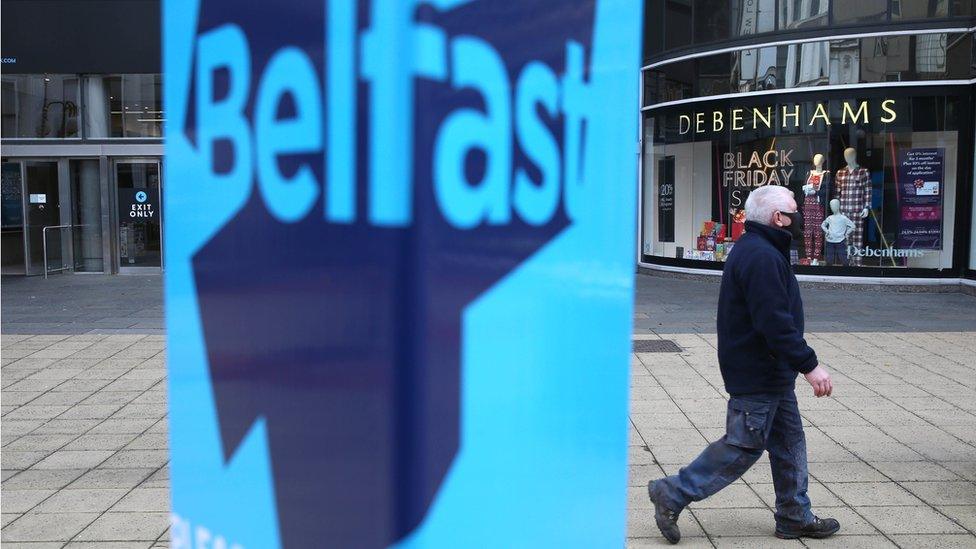
Speaking to Stormont's Executive Office committee on Wednesday, Mr Stewart said there was a future for retail, but stressed that the High Street offering "will simply not look like what it looked like even 18 months ago, two years ago".
"Many of the challenges are long-standing and they pre-date the Covid crisis, including the financial crash and years of under-investment."
He added that there was a need for "anchor tenants" but said there would be unique master plans for different cities and towns.
"Belfast will look different to Banbridge and Banbridge will look different to Belcoo," added the official.
Related topics
- Published3 February 2021
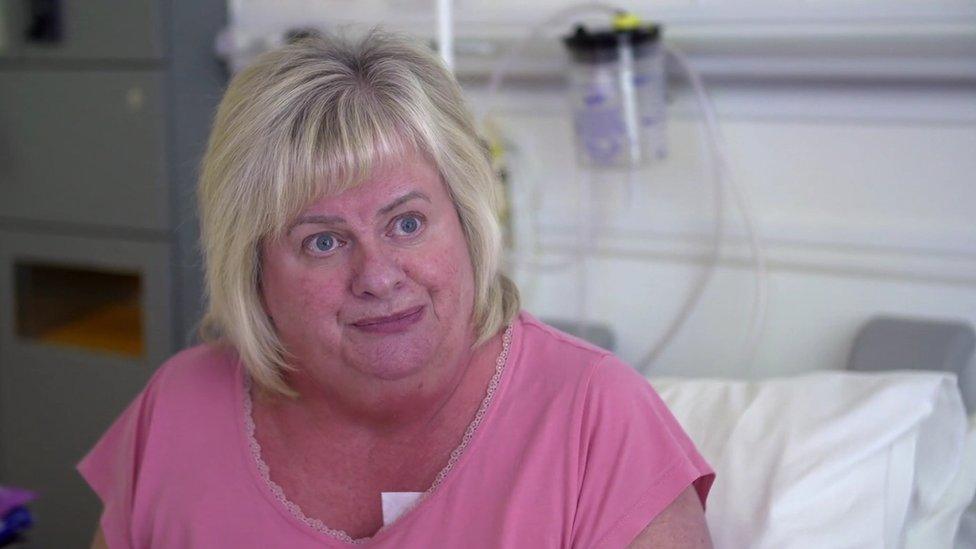
- Published20 February 2021
